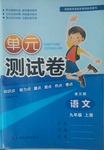题目内容
When I was learning calligraphy my teacher told me a story.
A calligrapher taught handwriting. One of his students who often practised handwriting with old sheets of newspapers complained that he made very little progress though he had learned it with the calligrapher for a long time. His teacher said to him, “Try to use the best paper. Maybe you’ll write better. ”
The student did as he was told. It really worked. He made headway not long afterwards and felt curious. He asked his teacher about the reason. The calligrapher answered, “When you used old newspapers to practice handwriting,you would think you were writing a draft(草稿). It didn’t matter if you wrote badly as old newspapers were plenty in supply. In that case you wouldn’t pay much attention to it. Now you use the best paper you’ll treasure it. Each time you write you feel strongly about the rarity (稀少) of chances and you’ll devote to it with all your heart and soul; you’ll do the handwriting much more attentively than otherwise practising it. Of course you’ve made rapid progress.”
Indeed,we spend our ordinary days just as they are worthless “old newspapers”. We don’t care if we scrawl and waste them, thinking that they will come endlessly --- those “old newspapers” are inexhaustible. In such a mood we may each day pass by opportunities but fail to catch any of them.
Life is not a military exercise but an actual war in which real weapons are used. In everyday life there’s no chance for us to draw a draft. That’s because what we call “draft” actually is the answer sheet we write that cannot be changed. Every day of our life is something new. Let us take every day as a sheet of best paper.
小题1:The calligrapher in the story told the student to write on the best paper because he thought _______.
小题2:The student didn’t make much progress at first because _________.
小题3:We learn from the passage that _________.
小题4:Which of the following is true according to the passage?
小题5:The writer wants to tell us that _________.
A calligrapher taught handwriting. One of his students who often practised handwriting with old sheets of newspapers complained that he made very little progress though he had learned it with the calligrapher for a long time. His teacher said to him, “Try to use the best paper. Maybe you’ll write better. ”
The student did as he was told. It really worked. He made headway not long afterwards and felt curious. He asked his teacher about the reason. The calligrapher answered, “When you used old newspapers to practice handwriting,you would think you were writing a draft(草稿). It didn’t matter if you wrote badly as old newspapers were plenty in supply. In that case you wouldn’t pay much attention to it. Now you use the best paper you’ll treasure it. Each time you write you feel strongly about the rarity (稀少) of chances and you’ll devote to it with all your heart and soul; you’ll do the handwriting much more attentively than otherwise practising it. Of course you’ve made rapid progress.”
Indeed,we spend our ordinary days just as they are worthless “old newspapers”. We don’t care if we scrawl and waste them, thinking that they will come endlessly --- those “old newspapers” are inexhaustible. In such a mood we may each day pass by opportunities but fail to catch any of them.
Life is not a military exercise but an actual war in which real weapons are used. In everyday life there’s no chance for us to draw a draft. That’s because what we call “draft” actually is the answer sheet we write that cannot be changed. Every day of our life is something new. Let us take every day as a sheet of best paper.
小题1:The calligrapher in the story told the student to write on the best paper because he thought _______.
| A.the student would practice more carefully on the best paper |
| B.it was comfortable to write on the bet paper |
| C.the student had enough money to buy the best paper. |
| D.the student could write more on the best paper. |
| A.he regarded his writing on old newspaper just as a draft |
| B.he was too poor to buy better paper to write |
| C.he didn’t follow his teacher’s advice |
| D.he was not used to the calligrapher’s teaching manner |
| A.the student finally gave up |
| B.the student made rapid progress by persisting more carefully |
| C.the calligrapher was strict with his students |
| D.old newspaper is not useful |
| A.What teachers say is always true. |
| B.Success calls for attentiveness. |
| C.Handwriting is easy to practice. |
| D.New things are always better than old ones. |
| A.there are some good ways to practice handwriting |
| B.life is like old newspaper |
| C.we should learn from the student in the story |
| D.life will not give us a chance to draw a draft |
小题1:A
小题2:A
小题3:B
小题4:B
小题5:D
试题分析:文章通过一位学生学习书法的故事,来告诉我们做任何事都要注意力集中,更加仔细的完成每一件事,认真的对待每一件事和每一个平凡的一天。
小题1:细节题。从第二段Each time you write you feel strongly about the rarity (稀少) of chances and you’ll devote to it with all your heart and soul;可知,书法家让学生用更好的纸写是让这个学生练习的更为认真,故选A
小题2:细节题。从第二段When you used old newspapers to practice handwriting,you would think you were writing a draft(草稿).可知,学生之前没有进步的原因是他把在旧报纸上练字当成是在写草稿,故选A
小题3:推断题。本题可以通过排除法做,文章通过书法家的最后一句话Of course you’ve made rapid progress讲到了学生按照老师所讲的认真的来写书法最终取得了进步,故选B
小题4:主旨题。文章主要讲解了做任何事都要注意力集中,更加仔细的完成每一件事,认真的对待每一件事和每一个平凡的一天,可知成功需要专注,故选B
小题5:推断题。从文章最后一段Life is not a military exercise but an actual war in which real weapons are used. In everyday life there’s no chance for us to draw a draft.可知,生活不会给我们“打草稿”的机会,故选D
点评:总体来说文章的题目设置并不难,推断题较多。对于推断题,需要把握好文章的作者的写作感情及主旨是什么,解答此类文章需要将自己设身处地的融入情节中,对于第一遍做不出的题目不要急于作答,将后续题目答完后再仔细作答。

练习册系列答案
 阳光试卷单元测试卷系列答案
阳光试卷单元测试卷系列答案
相关题目